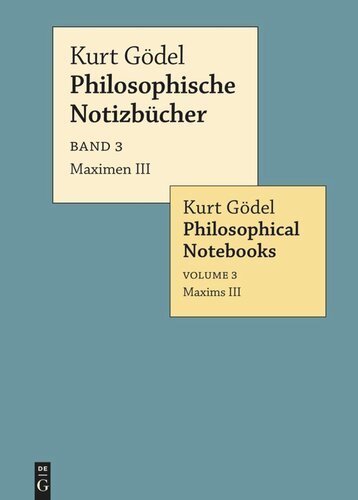

Most ebook files are in PDF format, so you can easily read them using various software such as Foxit Reader or directly on the Google Chrome browser.
Some ebook files are released by publishers in other formats such as .awz, .mobi, .epub, .fb2, etc. You may need to install specific software to read these formats on mobile/PC, such as Calibre.
Please read the tutorial at this link: https://ebookbell.com/faq
We offer FREE conversion to the popular formats you request; however, this may take some time. Therefore, right after payment, please email us, and we will try to provide the service as quickly as possible.
For some exceptional file formats or broken links (if any), please refrain from opening any disputes. Instead, email us first, and we will try to assist within a maximum of 6 hours.
EbookBell Team

4.0
46 reviewsOver a period of 22 years (1934–1955), mathematician Kurt Gödel put down a series of philosophical remarks – the so-called Philosophical Maxims (Max Phil) – in writing. They have been passed down in 15 notebooks written in Gabelsberger shorthand. The first notebook contains general philosophical reflections, while the second and third notebooks consist of Gödel’s applied individual ethics. The notebooks that follow show that Gödel developed a philosophy of science in which he placed his considerations of physics, psychology, biology, mathematics, language, theology, and history within the context of a particular metaphysics. Now for the first time ever, a complete, historical-critical edition of Gödel’s philosophical notebooks is being prepared by the Kurt Gödel Research Center of the Berlin-Brandenburg Academy of Sciences and Humanities. One volume will be published yearly as part of this series.
With the notebook "Maxims III," a new section of Gödel’s philosophical notebooks begins. This notebook sheds light on the relationship between various disciplines – in particular psychology, mathematics (specifically logic), and theology – and their respective significance for both the thinking and working scholar and for the knowledge system. It also contains considerations on heuristics and scholarly methods. The role of fundamental or simple concepts in thinking also becomes apparent.